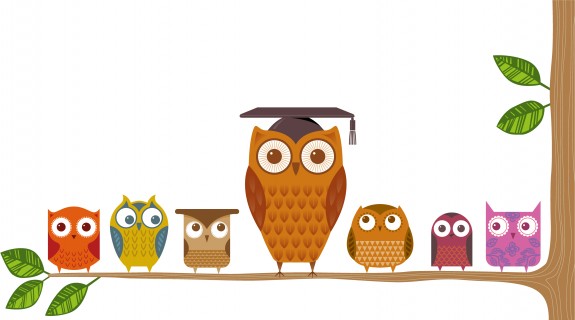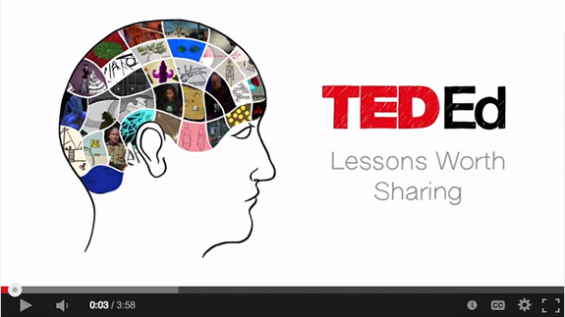
A parent’s advice to a teacher of autistic kids
At the start of Autism Acceptance Month, author Steve Silberman spoke to the United Nations about the need for school and workplace environments that embrace all kinds of minds. As a parent of an autistic child, I agree. Fortunately, my son’s current classroom is a place of joy and learning. Here are 10 things his teachers do — and you can, too — that make a big difference in the lives of autistic kids:
-
Be patient. Autistic children are just as sensitive to frustration and disappointment in those around them as non-autistic children, and just like other children, if that frustration and disappointment is coming from caregivers, it’s soul-crushing.
-
Presume competence. Begin any new learning adventure from a point of aspiration rather than deficit. Children know when you don’t believe in them and it affects their progress. Instead, assume they’re capable; they’ll usually surprise you. If you’re concerned, start small and build toward a goal.
-
Meet them at their level. Try to adapt to the issues they’re struggling with, as well as their strengths and special interests. When possible, avoid a one-size-fits all approach to curriculum and activities.
-
Treat challenges as opportunities. Each issue — whether it’s related to impulse control, a learning challenge, or a problem behavior — represents an opportunity for growth and accomplishment. Moreover, when you overcome one issue, you’re building infrastructure to overcome others.
-
Communicate, communicate, communicate. For many parents, school can be a black box. Send home quick notes about the day’s events. Ask to hear what’s happening at home. Establish communication with people outside the classroom, including at-home therapists, grandparents, babysitters, etc. Encourage parents to come in to observe the classroom. In short, create a continuous feedback loop so all members of the caregiver team are sharing ideas and insights, and reinforcing tactics and strategies.
-
Seek inclusion. This one’s a two-way street: not only do autistic children benefit from exposure to their non-autistic peers, those peers will get an invaluable life lesson in acceptance and neurodiversity. My son’s school, for example, partners with other nearby non-autism schools for regular events like Lunch Bunch and classroom drop-ins. They do outings in the neighborhood to get groceries for cooking class and supplies for projects. The point is to expose our kids to the world, and to expose the world to our kids.
-
Embrace the obsession. Look for ways to turn an otherwise obsessive interest into a bridge mechanism, a way to connect with your students. My son, for example, is fascinated by numbers and subway systems, often to the exclusion of everything else. Rather than constantly trying to redirect him, his teachers often find ways to incorporate and generalize those interests into classroom activities and lessons.
-
Create a calm oasis. Anxiety, sensory overload and focus issues affect many kids (and adults!), but are particularly pronounced in autistic children. By looking for ways to reduce noise, visual clutter and other distracting stimuli, your kids will be less anxious and better able to focus.
-
Let them stim! Some parents want help extinguishing their child’s self-stimulatory behaviors, whether it’s hand-flapping, toe-walking, or any number of other “stimmy” things autistic kids do. Most of this concern comes from a fear of social stigma. Self-stimulatory behaviors, however, are soothing, relaxing, and even joy-inducing. They help kids cope during times of stress or uncertainty. You can help your kids by encouraging parents to understand what these behaviors are and how they help.
-
Encourage play and creativity. Autistic children benefit from imaginative play and creative exercises just like their non-autistic peers, misconceptions aside. I shudder when I think about the schools who focus only on deficits and trying to “fix” our kids without letting them have the fun they so richly deserve. My son’s school, for example, has dress-up days, talent shows, cooking classes, painting and drawing lessons, etc. Imaginative play is a social skill, and the kids love it.
To learn more about autism, watch these TED Talks:
-
Temple Grandin: The world needs all kinds of minds
-
Steve Silberman: The forgotten history of autism
-
Rosie King: How autism freed me to be myself
-
Faith Jegede: What I’ve learned from my autistic brothers
-
Wendy Chung: Autism—what we know (and what we don’t know yet)
-
Brian Kinghorn: Educating a neurodiverse world
Recommended reading on autism:
-
Steve Silberman: NeuroTribes
-
Barry M. Prizant: Uniquely Human
-
Naoki Higashida: The Reason I Jump
-
Paul Collins: Not Even Wrong: Adventures in Autism
Image credit: iStock





Thank you very much for creating this blog. I found it fascinating your advice to teachers, I will share with my husband and with my autistic daughter teachers and other parents. I mostly agree with your suggestions.
This is actually aproppriate approach in educating every kid! Thank you for posting it!
Great advice. My son’s teachers ingenuity and compassion made all the difference in the world–he thrived under their care.
I have an autistic team who works with me and two who have expertise in education shared their advice for teachers–so interesting for teachers to hear what’s important from the autistic adult’s perspective too.
I am an autistic classroom caregiver and educator. I loved the thoughts ofmthis autistic father. Somtrue all of them. The best was the stimming allowance and the safe oasis. I see joy and frustrations fade away when those two things are allowed. You have to find and create a safe place and I did for this incredible fellow I care for at my school!
I have a very young nephew who is speech delayed and may be autistic. As a former teacher & aunt to a developmentally delayed child I found all of these comments and suggestions to be very helpful. The more I can learn to help my beloved nephew the better. thank you for this post. Anyone who has regular interaction with autistic children could greatly benefit from this information. It’s so important to educate all caregivers in an autistic child’s life.
This is a very good advice for everyone. Thank you for sharing this, I might visit here sometime for the updates.
All kids are intelligent, teachers, parents & friends…….. help to lookout as & when they interacts with them to find out their talents of skills have in them. When we realize their talents they were very happy & enjoy together & less stress. Successful for all of us, that ‘s why they are call special kids who are very talented in one things. So find it out & build it up for them to help them to complete their GOALS!!!!!!!